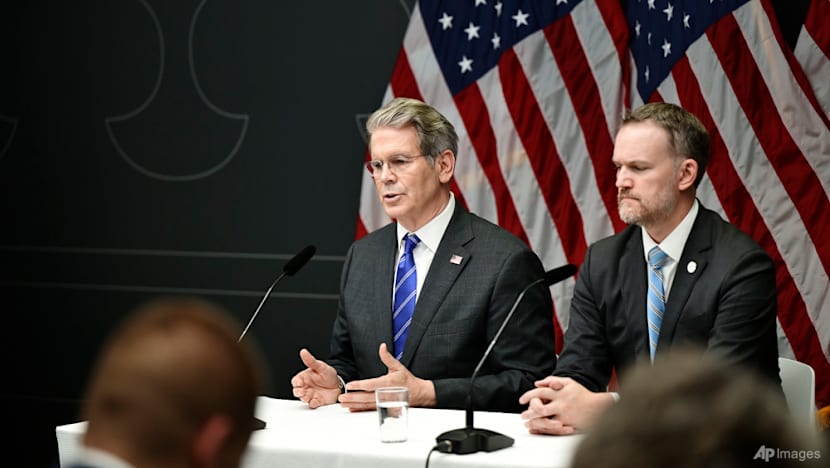US tariffs on China from Nov 1 depend on Beijing’s actions, says trade chief

WASHINGTON: US Trade Representative Jamieson Greer said on Tuesday (Oct 14) that whether additional 100 per cent tariffs on Chinese exports take effect on Nov 1 or sooner depends on Beijing’s next moves, though he acknowledged it may be difficult for China to find an off-ramp.
Greer told CNBC that US and Chinese officials held staff-level trade talks in Washington on Monday, and that both sides were still exploring a resolution over China’s restrictions on critical minerals exports.
“We think we’ll be able to work through it, but we can’t have a situation where the Chinese keep this regime in place, where they want to have veto power over the world’s high-tech supply chains,” Greer said. “I think they have realized that they’ve overstepped.”
TRADE TENSIONS ESCALATE
Financial markets have been volatile since President Donald Trump announced new 100 per cent duties on Chinese goods, on top of average tariffs of 55 per cent, in retaliation for Beijing’s expanded controls on rare earth exports.
Treasury Secretary Scott Bessent and China’s Commerce Ministry have been working to ease concerns, assuring investors that talks are continuing to defuse a potential escalation in the trade war.
The International Monetary Fund warned on Tuesday that further deterioration in US-China trade ties could slow global growth and add inflationary pressures.
Greer said Trump remained open to negotiation, calling him a “dealmaker,” but added that China must show flexibility.
TRUMP CONSIDERS ENDING SOME TRADE TIES
Earlier on Tuesday, Trump said Washington was considering terminating some trade ties with China, including in relation to cooking oil, accusing Beijing of acting against US farmers.
“China purposefully not buying our soybeans and causing difficulty for our soybean farmers is an economically hostile act,” he wrote on social media. “We are considering terminating business with China having to do with cooking oil, and other elements of trade, as retribution.”
Trump said the US could easily produce cooking oil domestically, adding: “We don’t need to purchase it from China.”
China, the world’s largest buyer of soybeans, has sharply reduced US purchases in favour of sourcing from Brazil and Argentina amid tariff disputes.
Jeff Moon, who served as assistant US trade representative to China from 2016 to 2017, said these issues are old ones that have been resurfaced.
In terms of soybeans, for example, it "sort of confirms for Americans" that China did not live up to the "phase one" trade deal in 2020, said Moon.
China had committed to purchasing at least US$200 billion more in US goods and services over two years, with agriculture being a major component.
"What's just happened is that this is a reflection of China's effort to codify its informal coercion economically against other countries," Moon told CNA's Asia First programme.
"China is trying to tell Trump that if (he) wants a trade war, (he's) really going to get a trade war, and I think both sides have very strong weapons that they can use against each other.
"I think this is a race to the bottom, and they need to stop it," he added.
XI-TRUMP MEETING STILL PLANNED
Chinese officials gave “contradictory explanations” about the export curbs, Greer said, describing them as both retaliation and a national security measure. “They can’t have it both ways,” he told CNBC.
The trade chief noted that the US also has leverage, citing China’s weak property sector, high unemployment and dependence on exports.
“There’s still a plan for Trump and Chinese President Xi Jinping to meet, but whether it’ll go through or not — that’s up to the Chinese,” Greer said. “It makes sense for people to talk when they can.”
Trump and Xi had planned to meet during the Asia-Pacific Economic Cooperation summit hosted by South Korea later this month.
Moon said nobody thinks all the issues will be solved if this meeting takes place, or even if they meet in Beijing next year instead.
"But they can come to some half-measures or some kind of detente," he added.














